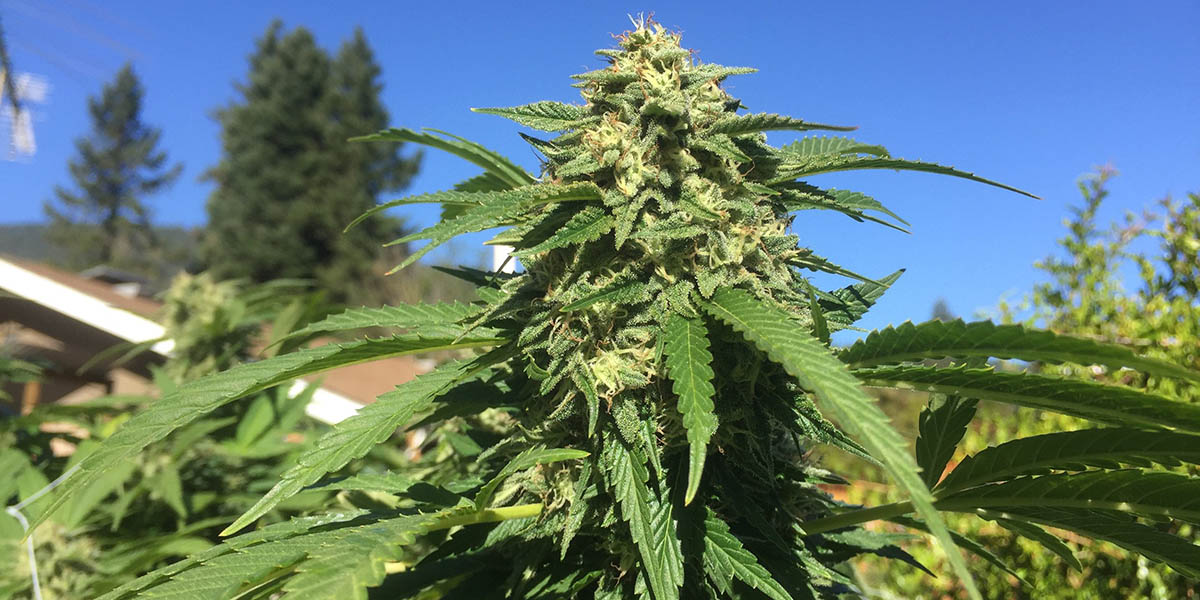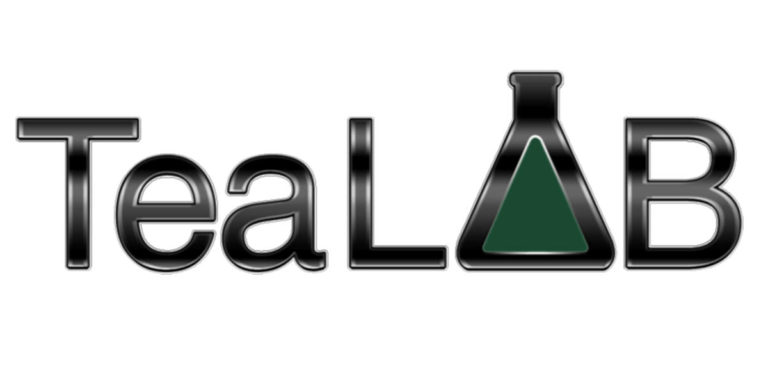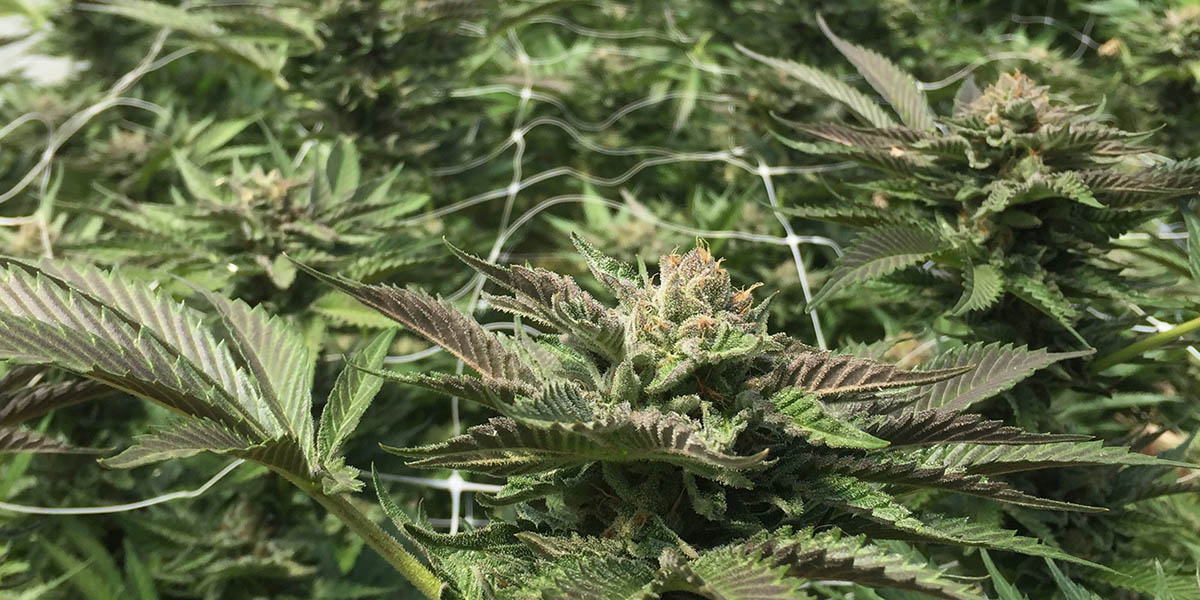Gardeners all know compost is terrific stuff. But there’s something even better than plain old compost, and that’s compost tea. As the name implies, compost tea is made by steeping compost in water. It’s used as either a foliar spray or a soil drench, depending on where your plant has problems.
Compost tea is a relatively old farming practice getting a modern makeover. Compost tea recipes range far and wide. Certain tea recipes can be tailored to remedy particular health issues or nutrient requirements for plants. Many adaptations of this brew involve products like compost, worm castings, humus, kelp, fish emulsion and a plethora of other ingredients added into the water. Along with the help of an air pump, they create a dynamic living brew.
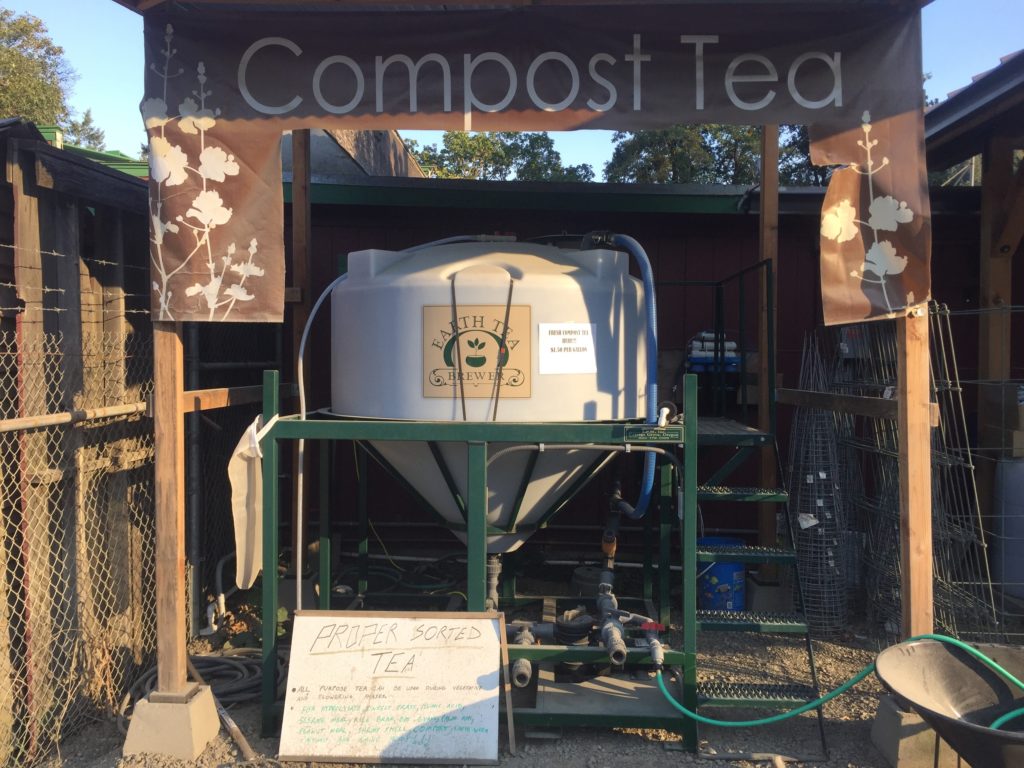
Making excellent compost tea starts with good compost and quality ingredients. When brewing with high quality ingredients, you help populate diverse groups of bacteria, fungi, protozoa and nematodes. The relationships of these microorganisms work synergistically with the plants root systems and leaf surfaces to modulate nutrient uptake and optimize plant health. It is a super charged biological brew that feeds and protects your plants with nutrients and immune boosting biology. The best way to describe it is “probiotics for plants”!
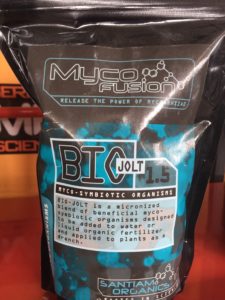
The benefits of compost tea point clearly to farming systems that works symbiotically with the land. These include:
- Using less fertilizers & maximizing nutrient uptake
- Working synergistically with biological pest controls
- Recharging the old soil with fresh microorganisms
- Increasing water holding capacity of soils
- Building farmable horizons of poorly structured soils
Based on the above benefits, a picture emerges of a biodynamic model for modern agriculture. Usually, the main setback that deters new users is the complexities involved with brewing compost tea.
To remedy this situation, a local company called Humboldt Earth Technologies (HET) was formed in January 2015. In March 2015, HET launched a new app called The Original Compost Tea Calculator®. It represents an entry in a new class of apps developed for both novice and experienced horticulturalists. Guided by the idea to make compost tea easier to make, the app provides tried and true recipes and an entire how-to guide for the less experienced compost tea crafters.
With the right management program integrating compost tea, you can use ½ to 1/3 fewer nutrients and still get increased yields, higher quality and clearly superior flavor. The recipes in this app are designed to be compatible with the different phases of plant growth. We have a grow, bloom and foliar recipe as well several others to boost overall microbial counts in the growing medium. We have found that a very successful regime involves transitioning between traditional fertilizers, watering, and compost tea applications. So one would use their liquid fertilizer on the first watering, the second watering would be the compost tea and the third watering would be plain water. You can repeat that schedule or mix and match in different patterns depending on other variables your dealing with. Some growers simply pre-amend their soils with all-purpose fertilizers and then water compost tea periodically throughout the growing cycles. The bottom line is that using compost tea will save you money by cutting down on expensive nutrient lines. It will help intensify the terpene profiles and resin levels of your flowers and when used properly with other organic fertilizers, it will consistently boost yields beyond what standard practices could do alone.


